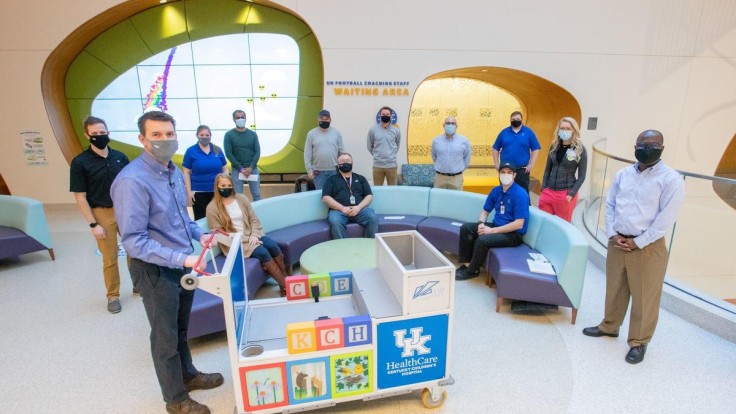
Following their success in developing a unique experience for past KCH patients at UK football games, Toyota engineers teamed up with student engineers from the University of Kentucky as part of the "Lift Them Up" mobility initiative. They look to help parents who had to deal with the difficult task of getting a medically fragile infant from the NICU to the car.
The developers then pitched their concept to Nelson Akafuah, Ph.D., associate director and instructor of the UK College of Engineering's Institute of Research for Technology Development. Akafuah and his pupils had previously collaborated with Toyota on the Lift Them Up cart, so he was eager to continue addressing the problems encountered by KCH patients.
"We determined that there was a need for a mobility vehicle that can take a patient when they're ready to go home; there was a need for some cart that could carry them safely as well as the parents' belongings and any equipment they needed," engineering manager at Toyota, Nick Potocki, stated. "So we decided that this was the project we needed to do," he continued.
Concept generation, planning and information collection, design embodiment, assessment, and selection are the main stages in the senior design capstone, which spans two semesters. The objective was to design a vehicle that could carry a medically fragile infant safely and accommodate any extra equipment like the oxygen tanks.
After the initial group graduates in May 2020, Akafuah hired Binit Singh, a mechanical engineering senior, to serve as the project's student liaison between the NICU and Toyota.
The cart's base contains space for the family's belongings and a pull-out drawer large enough to accommodate a cooler for storing breast milk. A safety belt secures the car seat and compartments for an oxygen tank and other equipment needed, which are among the properties of the cart.
Sharp's Experience
Thankfully, the University of Kentucky College engineering students and Toyota Motor Manufacturing of Kentucky collaborated on a workaround for the Sharps and other NICU parents.
By the time Toyota engineer Jeremy Sharp and wife Katie departed Kentucky Children's Hospital's neonatal intensive care unit (NICU) with Brayden, their son, they knew it wasn't going to be the happy homecoming they both hoped for.
Their son Brayden Sharp was born with a rare genetic disorder that required intensive medical attention. Leaving the hospital after 21 days in the NICU was a logistical and inventive struggle.
When the cart was sent to KCH, the Sharps took their baby Brayden along to test it.
"When you put your child in there, and there's a spot for their feeding pump, a spot for a cooler and for some patients, a spot for other things like an oxygen tank, you're saying, 'Wow, somebody thought of my situation,'" said Jeremy Sharp.
He continued by saying this: "And that gives you a lot more comfort, going out, knowing that somebody thought of you and your situation, even though it feels so crazy and foreign to you at the time."
Though the University of Kentucky College of Engineering and Toyota prepare their next partnership, the workers at KCH are happy to provide a little relief to patients and families during such a difficult time.